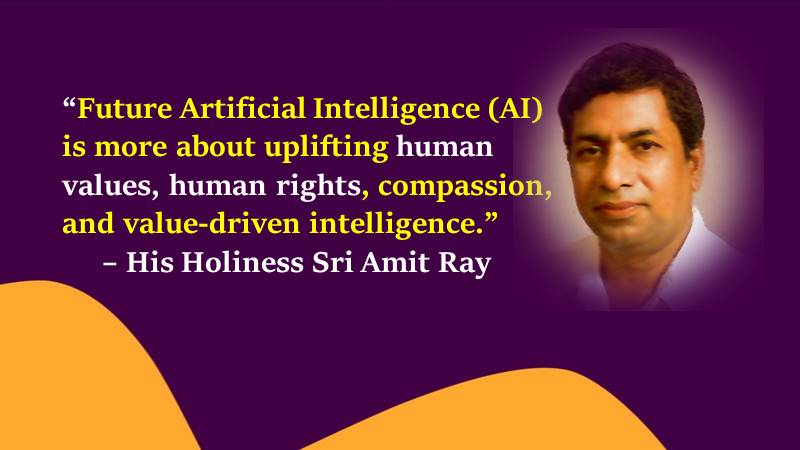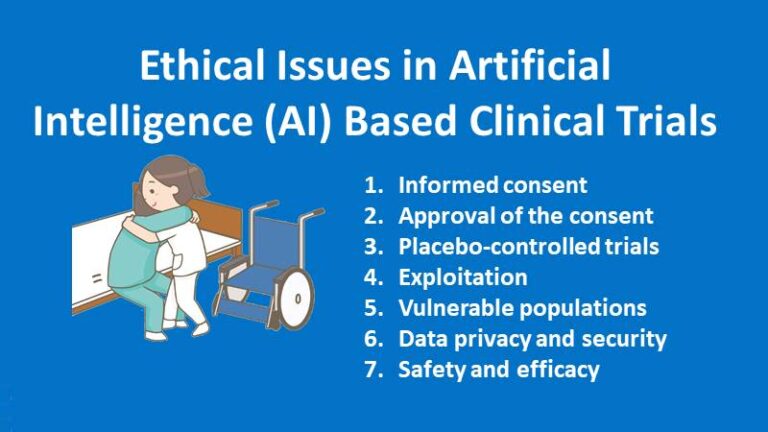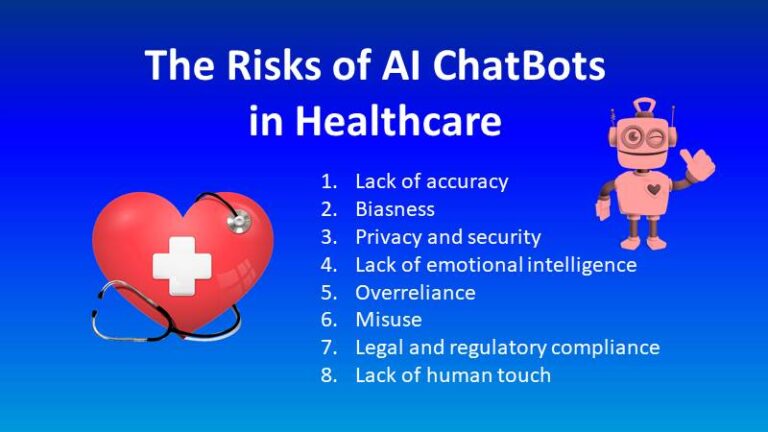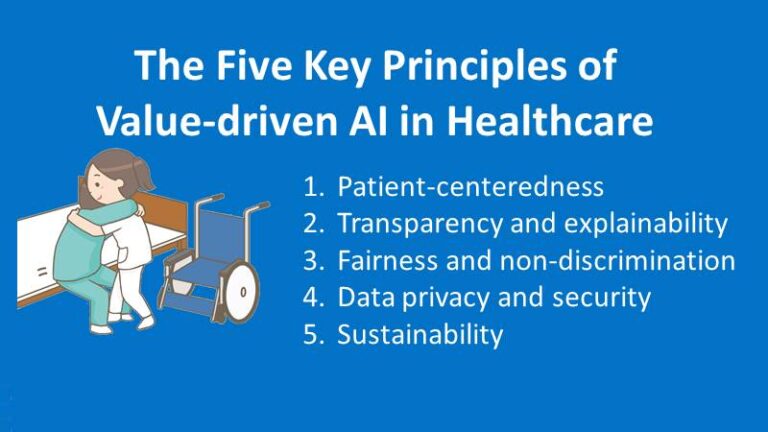Artificial Intelligence for Preventing and Curing Mental Illness
Artificial intelligence can play a significant role in helping detect, prevent, and cure mental illnesses including schizophrenia, Alzheimer’s disease, and autism. In this paper, we examine how to use value-driven artificial intelligence in detecting, preventing, and curing mental illness.
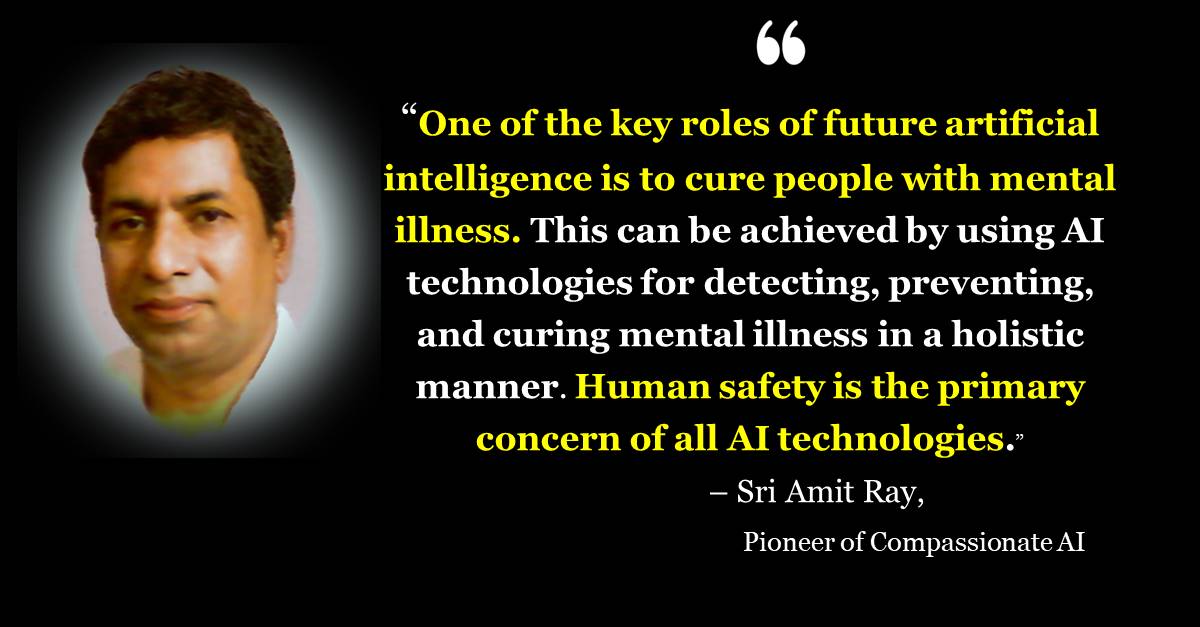
“One of the key roles of future artificial intelligence is to cure people with mental illness. This can be achieved by using AI technologies for detecting, preventing, and curing mental illness in a holistic manner. Human safety is the primary concern of all AI technologies.” – His Holiness Sri Amit Ray, Pioneer of Compassionate AI.
In this article, we first discussed the nature of mental illness problems and issues, then we discussed how artificial intelligence and machine learning techniques can be used to overcome those challenges.
Mental Illness Problems and Challenges
There are many different types of mental illness. It includes anxiety disorders, depression, schizophrenia, Alzheimer’s disease, bipolar disorder, post-traumatic stress disorder (PTSD), and autism. Mental disorders involve significant disturbances in thinking, emotional regulation, or behavior.
Mental illness is a type of health condition that unquestionably has an effect on a person’s feelings, cognition, and ability to connect socially with other people. These problems have demonstrated that mental illness can have severe repercussions for entire communities and highlight the need for innovative approaches to mental illness prevention and treatment.
Major factors that influence mental illness
Artificial intelligence models can be used to address the three major factors that influence mental illness:
- Biological Influences
- Socio-Cultural Influences
- Psychological Influences
The biological influences on mental health include:
- Genetic makeup of the individual.
- Brain structure and Frontal lobe activities
- Decreased level of neurotransmitters
- Chemical imbalances in the brain.
The socio-cultural influences [5] on mental illness include:
- Cultural expectations.
- Childhood abuses
- Domestic discrimination and abuses
- Loneliness
- Stigma & prejudice [6].
The psychological influences [7] on mental health include:
- Excessive fears or worries.
- Excessive stress, trauma, and anxiety
- Extreme feelings of guilt
- Withdrawal from friends and activities
- Suicidal thinking and negative thinking
- Excessive anger or hate
- Withdrawal from family, friends and loved ones.
Environmental Factors That Triggers Mental Illness
Human mental health emerges from a complex interplay between genetic, psychological, lifestyle, and the environment [8]. Certain stressors can trigger mental illness [9]. These stressors include:
- Overcrowded housing
- Excessive air pollution and lack of green space
- A dysfunctional family life
- Exposure to intimate partner violence
- Death of some one or divorce
- Changing jobs or schools
- Lack of exposure to blue sky.
Steps in diagnosing mental health problems
The diagnosis of mental health issues is a complicated and time-consuming process that cannot be completed in a straightforward manner or in a short amount of time. In most cases, the process of diagnosing an illness will start with a particular interview that consists of questions concerning the patient’s symptoms, medical history, and physical examination. In addition to that, psychological testing and evaluation tools are also available, and they are utilized in the process of diagnosing a person as having issues related to mental health. There are a few different lines of inquiry and approaches to research that have been taken to investigate and analyze the movements of the face in order to diagnose specific mental diseases [1]. The traditional neuro-physiological signals of mental health data collection are shown in the figure below.
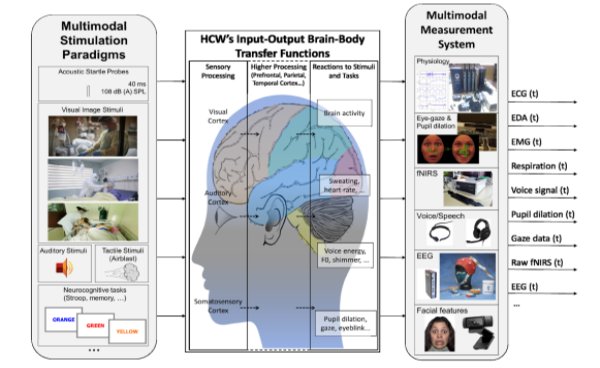
The four major techniques commonly used for artificial intelligence driven brain observation in the study of mental disorders are: functional magnetic resonance imaging (fMRI), magnetic resonance imaging (MRI), electroencephalography (EEG), and kinesics diagnosis.
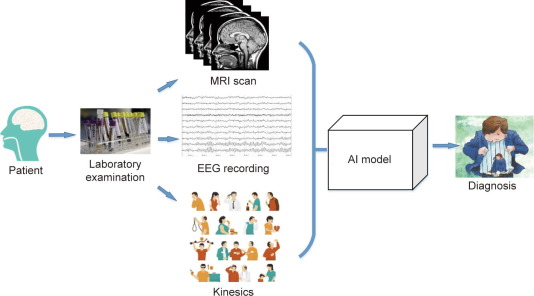
(Source)
Artificial intelligence for solving mental health issues
Artificial intelligence based healthcare systems are playing increasing roles in several diseases diagnosis and prevention. We identified the following seven areas where artificial intelligence can be used to improve the mental health of people:
- Artificial intelligence to detect mental illness;
- Artificial intelligence to prevent mental illness;
- Artificial intelligence to treat mental illness;
- AI to improve mental health governance;
- Using AI to provide comprehensive, integrated, and responsive mental health and social care services in community-based settings;
- AI to implement mental health promotion and prevention strategies; and
- Use of AI to strengthen information systems, evidence, and research for mental health.
Scope of Using AI to Mental Health Problems
The scope of applying artificial intelligence to mental health problems can be divided into seven types of problems, namely:
- Schizophrenia
- Anxiety and depression
- Bipolar disorder
- Posttraumatic stress disorder (PTSD)
- Autism
- Attention deficit hyperactivity disorder (ADHD)
- Mental health problems among children.
Machine Learning Tools to Mental Health Problems
Supervised learning, unsupervised learning, ensemble learning, neural networks, and deep learning are the different types of machine learning methodologies can be applied to detect and understand the mental health problems.
Functional magnetic resonance imaging (fMRI) data and structural magnetic resonance imaging (sMRI) data are two prominent types of neuroimage data that are evaluated in studies pertaining to mental illness analysis using deep learning techniques [11].
Both convolutional neural network (CNN) and deep belief network (DBN) models are used in order to extract relevant information from the neuroimages. In specifically, the CNN models are used primarily for the purpose of locating local spatial patterns, whereas the DBN models are used to acquire a hierarchical representation of the neuroimages. Both the prefrontal cortex and the cingulated cortex showed distinctively different patterns in people with different mental illness [12].
A combination of convolutional neural network and long short-term memory (CNN-LSTM) algorithms are often used for better performance [9]. A hybrid deep learning approach combining Convolutional Neural Network (CNN) and bi-directional Long Short-Term Memory (biLSTM) has been shown in some recent studies to improve prediction performance [10].
Artificial intelligence and Mental Illness fMRI studies
Artificial intelligence uses functional magnetic resonance imaging scans, often known as fMRI scans. These are used to produce imaging data of the brain in order to analyze dynamic brain activity. This is accomplished by detecting minute fluctuations in blood flow.
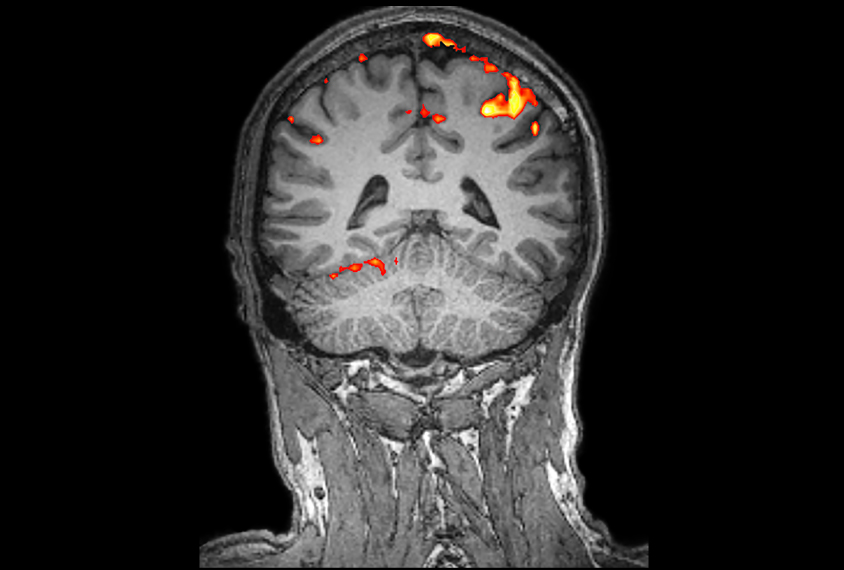
Artificial Intelligence to Detect Mental Illness
According to the findings of one study, more than half (54%) of the patients who were referred to the clinic with a diagnosis of schizophrenia did not in fact have schizophrenia.
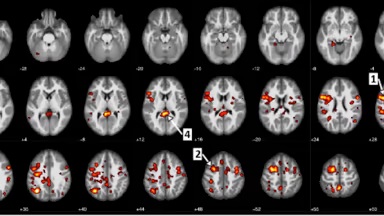
Artificial Intelligence to Prevent Mental Illness
The goal of mental health prevention is to cut down on the occurrence, prevalence, and recurrence of mental health illnesses, as well as the disability that is associated with them. It has been demonstrated that macro-level policy initiatives, such as those aimed at improving nutrition, housing, and education, or reducing economic insecurity, can lessen mental health problems [3].
Artificial Intelligence to Cure Mental Illness
According to the World Health Organization, a clinically significant impairment in an individual’s cognition, emotional regulation, or behavior characterizes as mental illness. It is frequently connected with distress or impairment in critical areas of functioning. There are numerous sorts of mental disorders.
Brain connectivity Analysis for Mental illness Detection
An innovative approach to researching mental illness is called functional connections analysis of brain [4]. Functional connections examines the ways in which various parts of the brain are linked to one another in terms of their functions, as opposed to the structural connections that are made between all of the neurons in our brain. The correlation between different parcellated voxels, or nodes, of the brain are analyzed with machine learning tools.
Mental Illness Datasets Reliability
The CDC Public Health Data System provides up-to-date statistics around mental health and mental illness. Mental illness data reliability refers to the degree to which it is comprehensive and accurate, and it is an essential component in laying the groundwork for developing trust in using machine learning algorithms. Data integrity initiatives are utilized not only to maintain data security, data quality, and regulatory compliance, but also to ensure that data reliability is preserved as one of the primary goals of any mental health project. Data world provides different mental health related data.
The following major agencies and organizations collect mental health data:
- Center for Disease Control and Prevention (CDC)
- National Institute of Alcohol Abuse and Alcoholism (NIAAA)
- National Institute of Mental Health (NIMH)
- Robert Wood Johnson Foundation (JWJF)
- Substance Abuse and Mental Health Services Administration (SAMHSA)
In a recent study, the AI models were initially instructed on the fundamentals of fMRI imaging and brain activity using a dataset that contained more than 10,000 individuals. This dataset served as the initial training ground for the AI models. After then, the researchers examined multi-site data sets containing information on over 1200 individuals, some of whom had Alzheimer’s disease, schizophrenia, or autistic spectrum disorder.
Summary
It is possible that artificial intelligence will play a key part in the treatment and prevention of mental illnesses such as schizophrenia, Alzheimer’s disease, and autism. We evaluate the potential role that value-driven artificial intelligence can play in the diagnosis, prevention, and treatment of mental illness in the current work.
Traditional artificial diagnostic procedures are gradually being phased out as the implementation of AI technology in medicine becomes more pervasive. On the other hand, fMRI, EEG, and kinesics are playing an increasingly significant part in AI based computer-aided diagnosis methods for mental illness.

